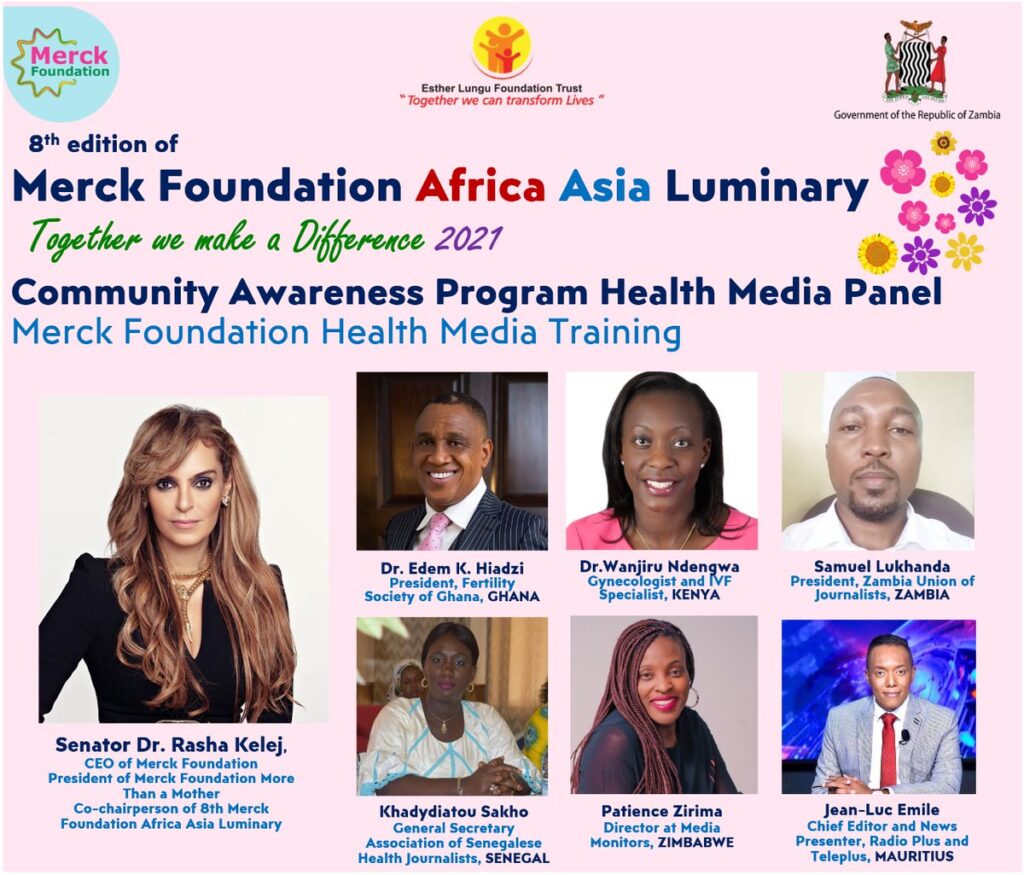01, May-2021 Editor
By James Buyinza
Merk Foundation on Thursday this week conducted a one day workshop for the media in a bid to promote awareness of the dangers of female infertility and to break the stigma.

The training was conducted by Merk Foundation health experts and media guru as an important milestone by the foundation to facilitate a cultural shift among communities towards stigmatization of infertile women.
The training follows a high level meeting of African First Ladies and Ambassadors of the MERK Foundation program dabbled “more than a mother”, health experts and Ministers within which the participant shared country experiences on a number of health issues and strategies to improve health facilities.
“The media needs to invest more in writing feature stories about infertility, the causes as well as creating awareness for the communities that still misrepresent infertile women” Patience Zirima Director Media Monitors in Zimbabwe.
While presenting on the topic “raising awareness about the importance of empowering Girls and women in education through media feature stories” She said that feature stories ensures that the story has more angles, interviews from many concerned individuals, issue based which in the end makes the story well balanced and informative in nature.
She called on the media to dedicate their skills in investigating more on stories that concern women and girls especially girls education, gender equality and community biases about the role of women in promoting economic development as these factors largely limit the potential of women in contributing to societal development.
Senator Rasha Kelej, Merk Foundation Chief Executive Officer expressed the need to promote massive awareness to end stigmatization of infertile women and called on the media to remain focused on writing stories that convey the message to change the negative perception about infertile women among their respective communities as this would help end stigmatization of infertility.
On her part, Dr. Wanjiru a Gyaenacologist and IVR specialist from Kenya explained that infertility is a shared responsibility which should be handled by all couples, but her experiences in the health sector indicate that men largely blame their wives for not being able to conceive, which she says is a misconception endowed in most African communities that is intended to stigmatize women.
She expressed the need for couples with infertility problems to consult medical specialists as early as possible so that they could avoid seeking medical assistance when it is too late, which she revealed that women are more likely to conceive a baby once treated at their early ages before 45 years of age, but when they come at the age of 45, it is sometimes impossible to reverse the infertility problem.
She explained that the causes of infertility are diverse, they could be from the male side or women side and not from a single person, when treating them, and the specialists need to look at all scenarios that might have caused these health problems.
“In most cases, women are the first people to consult paramedics, traditional herbalists and pastors to seek assistance. In this process, men are equally concerned, couples should help each other to address the infertility problems” she noted.
The media was challenged to always report stories on infertility objectively and bring out important aspects in order to create a cultural shift in the minds of community or family members of the couple that has experienced delayed child birth.
Dr. Edem K. Haidz called the media to be proactive in ensuring that the public is well informed with relevant information on how to deal with female infertility stigma.
In order to treat infertility, Dr. Edem K. Haidz explained that couples with infertility problems should take various ways that include; control infertility among couples which included controlling ovarium stimulation with timed sexual intercourse, gamete donation, safe sex practices, eating balanced diet, maintaining good weight as well as seeking medical treatments.
He urged the media to promote the gospel “infertility is a shared responsibility for both men and women, couples should jointly address the issue that affects them, men should instead help their wives not to replace them”.
http://champions.rw/African-Media-professionals-equipped-with-health-reporting-skills-to-end.html
